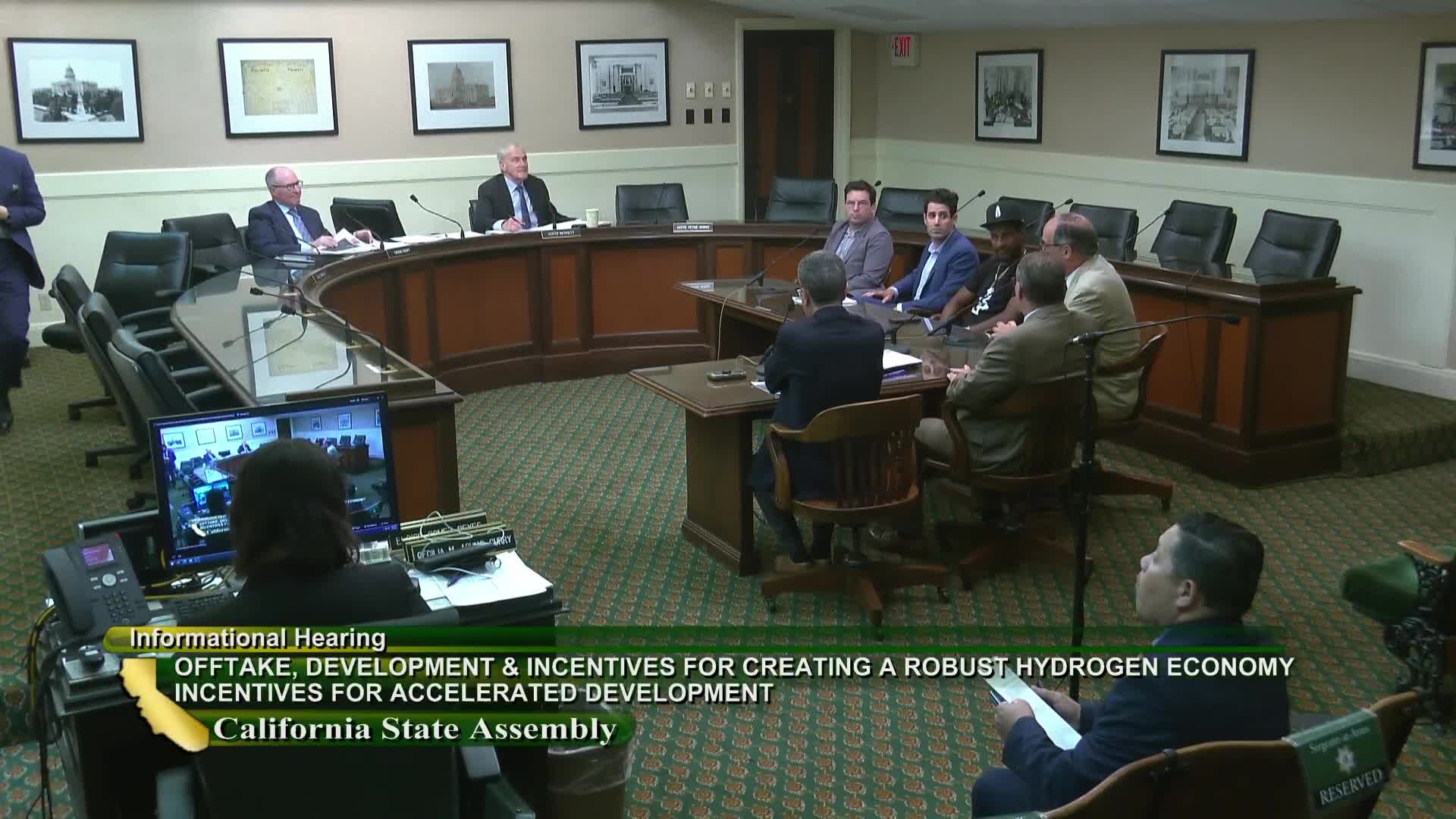Fuel Cell Vehicles Transform Lives in Disadvantaged Communities
August 06, 2024 | California State Assembly, House, Legislative, California
This article was created by AI summarizing key points discussed. AI makes mistakes, so for full details and context, please refer to the video of the full meeting. Please report any errors so we can fix them. Report an error »

In a recent government meeting, officials provided an update on a pilot project aimed at assessing the viability of light-duty fuel cell vehicles for low-income residents and disadvantaged communities. The initiative, which began in collaboration with Gobiz, focuses on overcoming barriers to zero-emission vehicle (ZEV) adoption in both rural and urban areas.
The project has been implemented in two regions: rural areas with long travel distances and urban neighborhoods characterized by high rates of multi-unit housing and limited electric vehicle charging infrastructure. To facilitate this transition, the program has offered used Toyota Mirai vehicles along with a $15,000 gift card to eligible participants in disadvantaged community census tracts.
Initial results from the pilot, which began in Coalinga in April 2022, indicate positive outcomes. Participants have reported driving an average of 18,000 miles per year, with some exceeding 24,000 miles. Despite rising hydrogen prices necessitating ongoing subsidies, participants expressed high satisfaction with their vehicles, highlighting the reliability and comfort of the Mirai.
The program has since expanded to South Los Angeles, where 25 customers were recruited in September 2023. Similar to the Coalinga experience, participants adapted to the fueling network, managing to drive an average of 12,000 miles over the past year. They have successfully navigated fueling challenges by strategically timing their visits to stations.
The project has not only provided participants with reliable transportation but has also significantly improved their quality of life. Many have reported reduced stress and increased job opportunities, as the burden of high gasoline costs has been alleviated. Overall, the pilot has demonstrated the potential of hydrogen fuel cell vehicles to enhance mobility and accessibility for low-income communities, with officials expressing optimism about future expansions and adaptations of the program.
The project has been implemented in two regions: rural areas with long travel distances and urban neighborhoods characterized by high rates of multi-unit housing and limited electric vehicle charging infrastructure. To facilitate this transition, the program has offered used Toyota Mirai vehicles along with a $15,000 gift card to eligible participants in disadvantaged community census tracts.
Initial results from the pilot, which began in Coalinga in April 2022, indicate positive outcomes. Participants have reported driving an average of 18,000 miles per year, with some exceeding 24,000 miles. Despite rising hydrogen prices necessitating ongoing subsidies, participants expressed high satisfaction with their vehicles, highlighting the reliability and comfort of the Mirai.
The program has since expanded to South Los Angeles, where 25 customers were recruited in September 2023. Similar to the Coalinga experience, participants adapted to the fueling network, managing to drive an average of 12,000 miles over the past year. They have successfully navigated fueling challenges by strategically timing their visits to stations.
The project has not only provided participants with reliable transportation but has also significantly improved their quality of life. Many have reported reduced stress and increased job opportunities, as the burden of high gasoline costs has been alleviated. Overall, the pilot has demonstrated the potential of hydrogen fuel cell vehicles to enhance mobility and accessibility for low-income communities, with officials expressing optimism about future expansions and adaptations of the program.
Don't Miss a Word: See the Full Meeting!
Go beyond summaries. Unlock every video, transcript, and key insight with a Founder Membership.
✓
Get instant access to full meeting videos
✓
Search and clip any phrase from complete transcripts
✓
Receive AI-powered summaries & custom alerts
✓
Enjoy lifetime, unrestricted access to government data
30-day money-back guarantee

